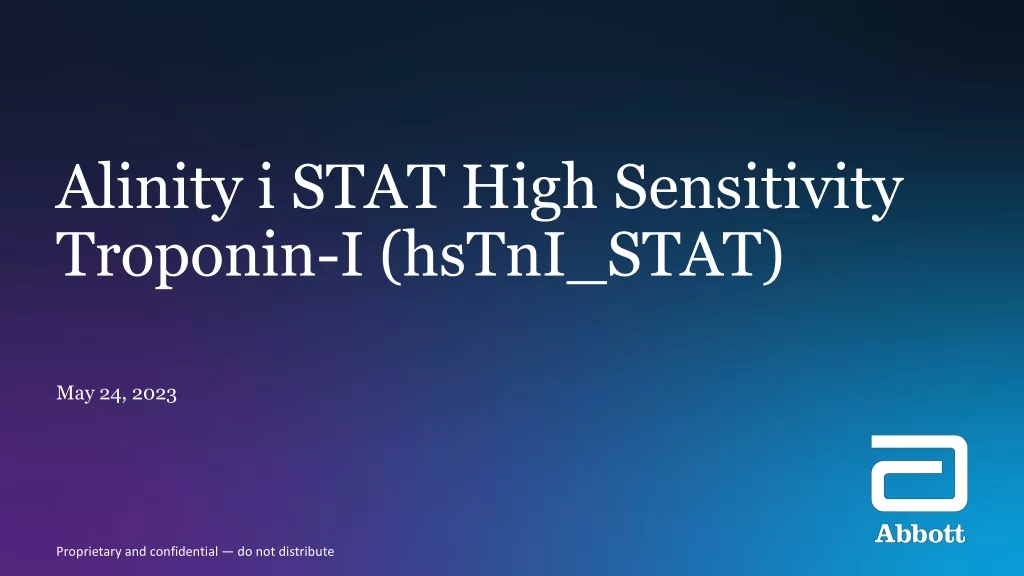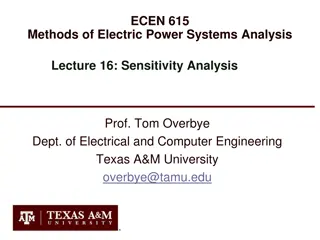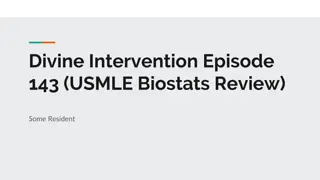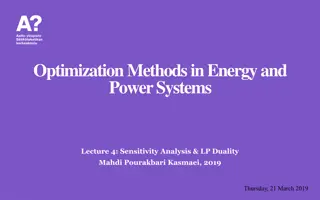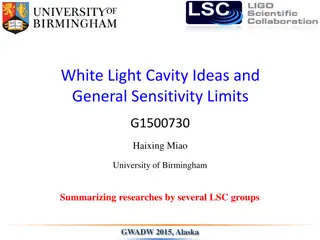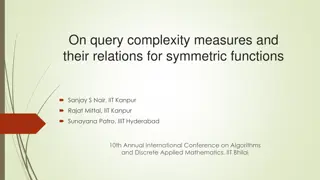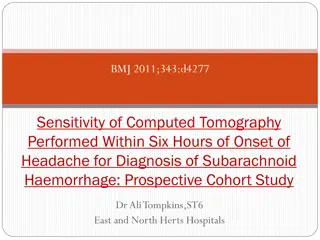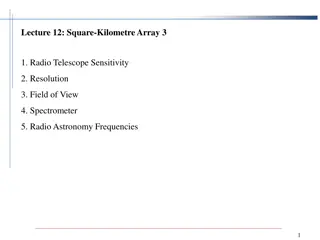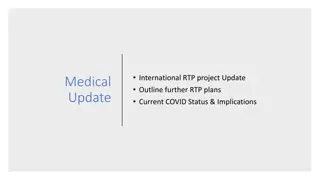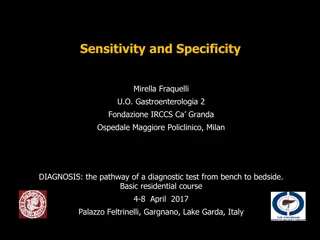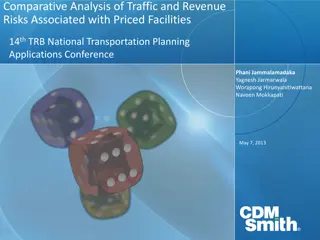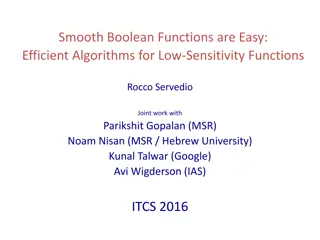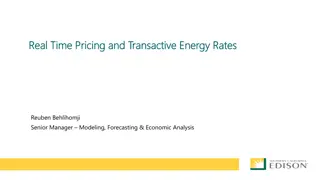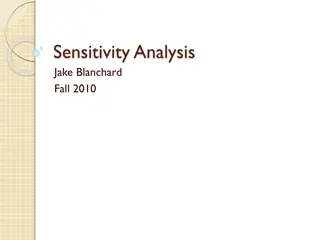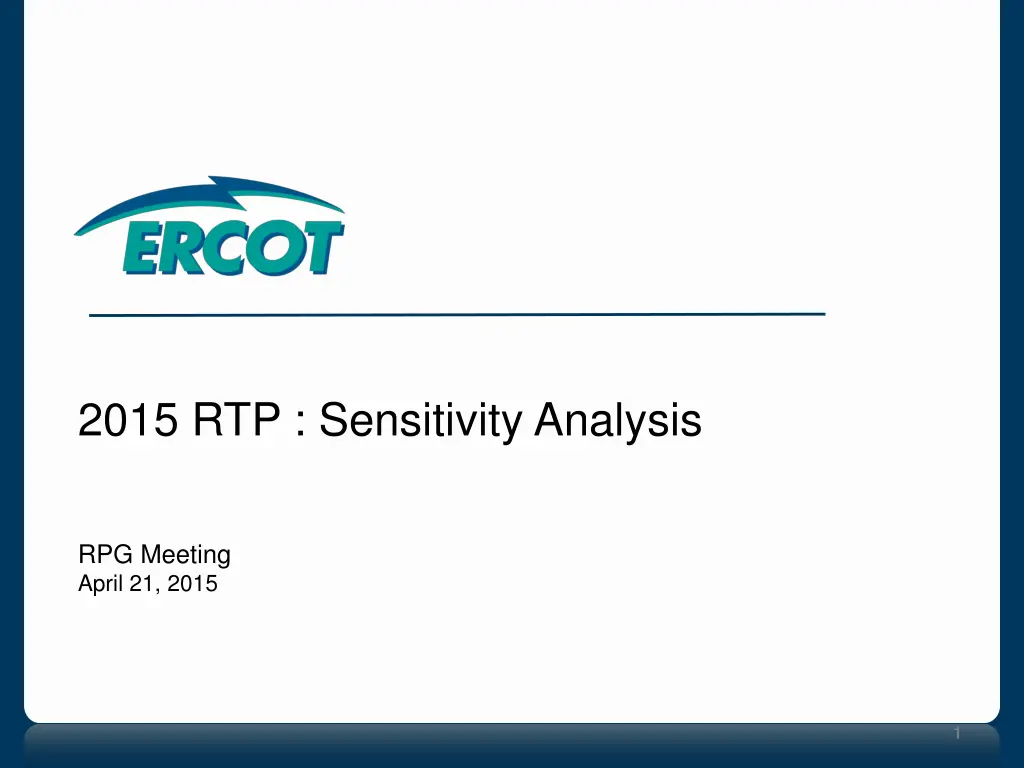
Sensitivity Analysis in Transmission System Planning: NERC Standard TPL-001-4 Overview
Explore the importance of sensitivity analysis in transmission system planning as mandated by NERC Standard TPL-001-4. Understand the objectives, study years, stressed system conditions, and specific analyses conducted to evaluate system performance under varying conditions.
Uploaded on | 1 Views
Download Presentation

Please find below an Image/Link to download the presentation.
The content on the website is provided AS IS for your information and personal use only. It may not be sold, licensed, or shared on other websites without obtaining consent from the author. If you encounter any issues during the download, it is possible that the publisher has removed the file from their server.
You are allowed to download the files provided on this website for personal or commercial use, subject to the condition that they are used lawfully. All files are the property of their respective owners.
The content on the website is provided AS IS for your information and personal use only. It may not be sold, licensed, or shared on other websites without obtaining consent from the author.
E N D
Presentation Transcript
2015 RTP : Sensitivity Analysis RPG Meeting April 21, 2015 1
Introduction Governing Standards: NERC Standard TPL-001-4 (Transmission System Planning Performance Requirements) requires Planning Coordinator to perform sensitivity analysis as part of their planning assessment Objectives of Sensitivity Analysis Demonstrate the impact of changes to the basic assumptions used in the models of the 2015 RTP Evaluate the effectiveness of solution options under additional system conditions resulting from variations in the study assumptions Identify potential corrective action plans which will be shared with stakeholders as a reference to guide analysis on the uncertain future system conditions 2
Study Year and Stressed System Conditions Study Years 2016 and 2020 summer peak cases 2018 off-peak case System Conditions Assumed Reduction in generator reactive power capability limit for the 2016 and 2020 summer peak cases High-wind low-load conditions for the 2018 off-peak case 3
Sensitivity Analysis: Summer Peak Load Conditions Sensitivity Analysis #1: Reduction in Reactive Power Capability Limit of Generators The 2016 and 2020 summer peak cases will be used to build the sensitivity cases The maximum reactive power limits of all generators in the ERCOT system will be reduced by 10% to capture the uncertainty of the maximum reactive power capability of generators: Steady-state power flow models have only two numbers (maximum and minimum limits) to represent the reactive power capability of a generator ERCOT Operating Guide Section 3.3.2.3 (7)* (Resource Testing and Qualification Procedures): the reactive verification tests are conducted to produce MVArs at a level not less than 90% of the amount indicated by the existing reactive capability curve. *http://www.ercot.com/content/mktrules/guides/noperating/current/03-060114.doc 4
Sensitivity Analysis: Off-peak Load Conditions Sensitivity Analysis #2: High-Wind Low-Load Conditions The 2018 minimum load case will be used to build this off-peak sensitivity case. ERCOT will evaluate the impact on the transmission system under High-Wind Low-Load conditions Generation Dispatch Level All wind generation modeled in the base case will be dispatched up to 90% of its maximum MW capacity, consistent with the latest SSWG High-Wind Low-Load case (15DSB_2018_HWLL_TPIT_Final_02242015.raw) Security-Constrained Optimal Power Flow (SCOPF) will be performed to determine the generation dispatch Load Level: The load in the 2018 min base case will be adjusted to the load level of the SSWG 2018 High-Wind Low-Load case (SSWG Manual 4.3.3) 5
Next Step ERCOT will review stakeholder s comments and incorporate them into the 2015 RTP Scope 6

